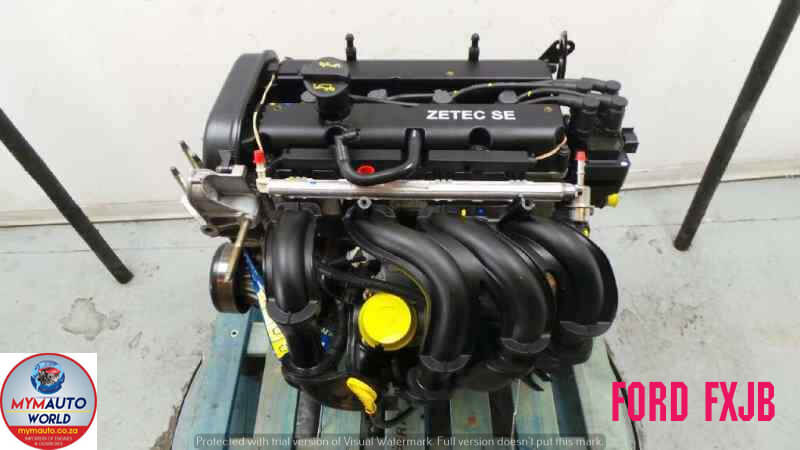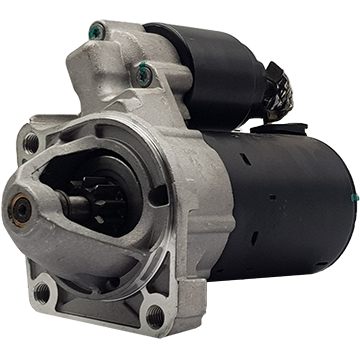Troubleshooting Ford Fiesta Engine Problems: What You Need to Know
Troubleshooting Ford Fiesta Engine Problems: What You Need to Know
Blog Article
Opening the Power of Engines: A Comprehensive Overview to Performance and Effectiveness
Understanding the intricate mechanics of engines is crucial for both performance fanatics and everyday vehicle drivers. The solutions may redefine our approach to engine efficiency and effectiveness in means that are both enlightening and important.
Understanding Engine Basics
What makes up the fundamental technicians of an engine? At its core, an engine is a maker developed to transform fuel right into mechanical power through a series of regulated explosions or burning procedures.
The crankshaft then changes this linear motion right into rotational energy, which inevitably powers the car. The camshaft regulates the opening and closing of the shutoffs, controling the consumption of air and fuel and the expulsion of exhaust gases. In addition, the engine depends on a carefully calibrated fuel-air mixture, ignition system, and cooling system to make certain optimal efficiency and performance.
Comprehending engine essentials also includes identifying the relevance of engine cycles, such as the four-stroke cycle, which includes intake, compression, power, and exhaust strokes. Each stage is vital in making sure the engine functions smoothly and successfully. Proficiency of these basic mechanics lays the foundation for exploring much more complicated engine characteristics and efficiency metrics, important for maximizing both power result and performance.
Key Performance Metrics
Secret efficiency metrics are crucial for evaluating an engine's efficiency and power output, supplying beneficial understandings for both manufacturers and consumers. These metrics serve as criteria for engine performance, permitting notified decisions in acquiring, style, and production.
Among the primary metrics is horse power, which evaluates the engine's capability to perform work over time. Torque, gauged in pound-feet, is an additional critical metric that indicates the engine's rotational pressure, directly influencing velocity and hauling ability. Gas performance, generally measured in miles per gallon (MPG) or litres per 100 kilometers (L/100km), evaluates just how properly the engine converts gas into activity, influencing environmental factors to consider and functional costs.
In addition, thermal effectiveness measures exactly how well an engine converts gas energy right into useful job, revealing understandings into power losses primarily via heat. Exhaust degrees, including carbon dioxide and NOx, are likewise vital, showing the engine's environmental effect and conformity with regulatory requirements.

Tuning Methods for Efficiency
Tuning methods play a substantial role in boosting engine effectiveness by maximizing performance metrics determined in earlier conversations (ford fiesta engine). Numerous approaches exist to tweak an engine, each adding to boosted fuel economic climate and decreased exhausts
One reliable technique is changing the air-fuel ratio, making certain the engine operates within the optimum burning regime. A leaner mix can improve gas efficiency, however it needs to be stabilized to stop misfires or engine knock. Additionally, reprogramming the engine management system can rectify parameters such as ignition timing, which even more improves efficiency while maintaining power output.
An additional important method involves customizing the intake and exhaust systems. Updating to high-performance air filters and exhaust headers can decrease back stress, facilitating better airflow. This permits the engine to take a breath even more openly, causing improved burning performance.
Furthermore, the execution of innovative adjusting tools, like dyno testing, supplies accurate data that makes it possible for targeted changes. Frequently keeping an eye on these performance metrics guarantees that adjusting efforts yield the wanted effectiveness outcomes. Jointly, these strategies not just bolster engine efficiency yet likewise add go to the website to lasting sustainability in engine procedures.
Maintenance for Optimum Efficiency
Regular engine upkeep is necessary for attaining optimum performance and long life. A well-kept engine not just operates effectively but additionally lessens the threat of expensive repair work and breakdowns. Trick components needing regular interest consist of oil, filters, belts, and stimulate plugs.
Transforming the engine oil at recommended periods is crucial, as oil lubes relocating components and stops getting too hot. Replacing oil and air filters makes sure that impurities do not harm engine function. Overlooking these parts can result in lowered efficiency and possible engine damage.
Furthermore, evaluating and changing worn belts and tubes is important to protect against sudden failures. Timing belts, particularly, must be replaced according to the maker's timetable to stay clear of catastrophic engine damage.
Ignition system need to also be checked and replaced as required, considering that they play a crucial role in ignition and fuel efficiency.
Future Trends in Engine Technology
Accepting developments in modern technology, the future of engine layout is poised to revolutionize efficiency and effectiveness across various applications. Hybrid and completely electric powertrains are coming to be progressively mainstream, offering lowered discharges and enhanced Visit This Link fuel efficiency.
Additionally, advancements in materials scientific research are resulting in lighter, more powerful elements that boost engine efficiency while decreasing power consumption. Advanced production techniques, such as 3D printing, permit the production of intricate geometries that boost air flow and thermal management, thus enhancing burning procedures.
In addition, the combination of fabricated intelligence and equipment discovering is readied to transform engine diagnostics and efficiency adjusting. These technologies can analyze huge quantities of information in real time, allowing anticipating maintenance and tailored efficiency improvements.
Conclusion
In verdict, unlocking the power of engines needs a detailed understanding of their technicians and efficiency metrics. Carrying out efficient tuning methods and sticking to routine maintenance techniques dramatically improve engine capacities.
Additionally, the engine counts on a very carefully adjusted fuel-air mixture, ignition system, and cooling down system to guarantee ideal efficiency and efficiency.
Recognizing engine basics also entails recognizing the importance of engine cycles, such as the four-stroke cycle, which consists of consumption, power, exhaust, and compression strokes. Mastery of these basic mechanics lays the groundwork for checking out extra complex engine dynamics and efficiency metrics, important for enhancing both power result and performance.

Embracing developments in modern technology, the future of engine design is poised to change performance and effectiveness throughout numerous applications.
Report this page